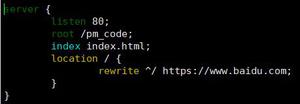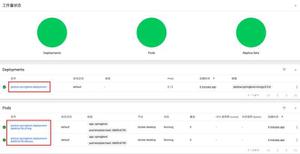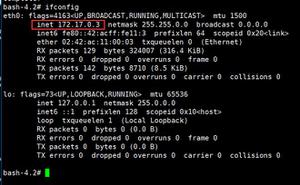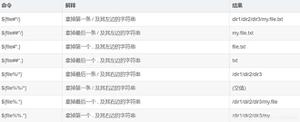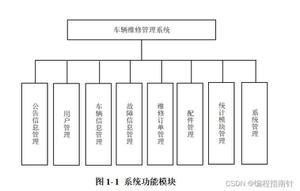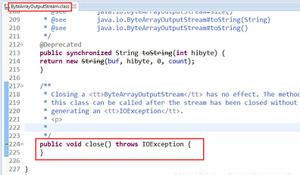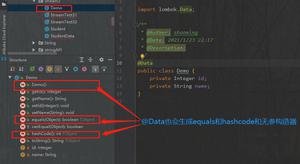【SpringBootWEB系列】异步请求知识点与使用姿势小结

【SpringBoot WEB系列】异步请求知识点与使用姿势小结
在 Servlet3.0 就引入了异步请求的支持,但是在实际的业务开发中,可能用过这个特性的童鞋并不多?
本篇博文作为异步请求的扫盲和使用教程,将包含以下知识点
- 什么是异步请求,有什么特点,适用场景
- 四种使用姿势:
- AsyncContext 方式
- Callable
- WebAsyncTask
- DeferredResult
<!-- more -->
I. 异步请求
异步对于我们而言,应该属于经常可以听到的词汇了,在实际的开发中多多少少都会用到,那么什么是异步请求呢
1. 异步请求描述
先介绍一下同步与异步:
一个正常调用,吭哧吭哧执行完毕之后直接返回,这个叫同步;
接收到调用,自己不干,新开一个线程来做,主线程自己则去干其他的事情,等后台线程吭哧吭哧的跑完之后,主线程再返回结果,这个就叫异步
异步请求:
我们这里讲到的异步请求,主要是针对 web 请求而言,后端响应请求的一种手段,同步/异步对于前端而言是无感知、无区别的
同步请求,后端接收到请求之后,直接在处理请求线程中,执行业务逻辑,并返回
异步请求,后端接收到请求之后,新开一个线程,来执行业务逻辑,释放请求线程,避免请求线程被大量耗时的请求沾满,导致服务不可用
2. 特点
通过上面两张图,可以知道异步请求的最主要特点
- 业务线程,处理请求逻辑
- 请求处理线程立即释放,通过回调处理线程返回结果
3. 场景分析
从特点出发,也可以很容易看出异步请求,更适用于耗时的请求,快速的释放请求处理线程,避免 web 容器的请求线程被打满,导致服务不可用
举一个稍微极端一点的例子,比如我以前做过的一个多媒体服务,提供图片、音视频的编辑,这些服务接口有同步返回结果的也有异步返回结果的;同步返回结果的接口有快有慢,大部分耗时可能<10ms,而有部分接口耗时则在几十甚至上百
这种场景下,耗时的接口就可以考虑用异步请求的方式来支持了,避免占用过多的请求处理线程,影响其他的服务
II. 使用姿势
接下来介绍四种异步请求的使用姿势,原理一致,只是使用的场景稍有不同
1. AsyncContext
在 Servlet3.0+之后就支持了异步请求,第一种方式比较原始,相当于直接借助 Servlet 的规范来实现,当然下面的 case 并不是直接创建一个 servlet,而是借助AsyncContext来实现
@RestController@RequestMapping(path = "servlet")
public class ServletRest {
@GetMapping(path = "get")
public void get(HttpServletRequest request) {
AsyncContext asyncContext = request.startAsync();
asyncContext.addListener(new AsyncListener() {
@Override
public void onComplete(AsyncEvent asyncEvent) throws IOException {
System.out.println("操作完成:" + Thread.currentThread().getName());
}
@Override
public void onTimeout(AsyncEvent asyncEvent) throws IOException {
System.out.println("超时返回!!!");
asyncContext.getResponse().setCharacterEncoding("utf-8");
asyncContext.getResponse().setContentType("text/html;charset=UTF-8");
asyncContext.getResponse().getWriter().println("超时了!!!!");
}
@Override
public void onError(AsyncEvent asyncEvent) throws IOException {
System.out.println("出现了m某些异常");
asyncEvent.getThrowable().printStackTrace();
asyncContext.getResponse().setCharacterEncoding("utf-8");
asyncContext.getResponse().setContentType("text/html;charset=UTF-8");
asyncContext.getResponse().getWriter().println("出现了某些异常哦!!!!");
}
@Override
public void onStartAsync(AsyncEvent asyncEvent) throws IOException {
System.out.println("开始执行");
}
});
asyncContext.setTimeout(3000L);
asyncContext.start(new Runnable() {
@Override
public void run() {
try {
Thread.sleep(Long.parseLong(request.getParameter("sleep")));
System.out.println("内部线程:" + Thread.currentThread().getName());
asyncContext.getResponse().setCharacterEncoding("utf-8");
asyncContext.getResponse().setContentType("text/html;charset=UTF-8");
asyncContext.getResponse().getWriter().println("异步返回!");
asyncContext.getResponse().getWriter().flush();
// 异步完成,释放
asyncContext.complete();
} catch (Exception e) {
e.printStackTrace();
}
}
});
System.out.println("主线程over!!! " + Thread.currentThread().getName());
}
}
完整的实现如上,简单的来看一下一般步骤
javax.servlet.ServletRequest#startAsync()获取AsyncContext- 添加监听器
asyncContext.addListener(AsyncListener)(这个是可选的)- 用户请求开始、超时、异常、完成时回调
- 设置超时时间
asyncContext.setTimeout(3000L)(可选) - 异步任务
asyncContext.start(Runnable)
2. Callable
相比较于上面的复杂的示例,SpringMVC 可以非常 easy 的实现,直接返回一个Callable即可
@RestController@RequestMapping(path = "call")
public class CallableRest {
@GetMapping(path = "get")
public Callable<String> get() {
Callable<String> callable = new Callable<String>() {
@Override
public String call() throws Exception {
System.out.println("do some thing");
Thread.sleep(1000);
System.out.println("执行完毕,返回!!!");
return "over!";
}
};
return callable;
}
@GetMapping(path = "exception")
public Callable<String> exception() {
Callable<String> callable = new Callable<String>() {
@Override
public String call() throws Exception {
System.out.println("do some thing");
Thread.sleep(1000);
System.out.println("出现异常,返回!!!");
throw new RuntimeException("some error!");
}
};
return callable;
}
}
请注意上面的两种 case,一个正常返回,一个业务执行过程中,抛出来异常
分别请求,输出如下
# http://localhost:8080/call/getdo some thing
执行完毕,返回!!!
异常请求: http://localhost:8080/call/exception
do some thing出现异常,返回!!!
2020-03-29 16:12:06.014 ERROR 24084 --- [nio-8080-exec-5] o.a.c.c.C.[.[.[/].[dispatcherServlet] : Servlet.service() for servlet [dispatcherServlet] threw exception
java.lang.RuntimeException: some error!
at com.git.hui.boot.async.rest.CallableRest$2.call(CallableRest.java:40) ~[classes/:na]
at com.git.hui.boot.async.rest.CallableRest$2.call(CallableRest.java:34) ~[classes/:na]
at org.springframework.web.context.request.async.WebAsyncManager.lambda$startCallableProcessing$4(WebAsyncManager.java:328) ~[spring-web-5.2.1.RELEASE.jar:5.2.1.RELEASE]
at java.util.concurrent.Executors$RunnableAdapter.call(Executors.java:511) ~[na:1.8.0_171]
at java.util.concurrent.FutureTask.run$$$capture(FutureTask.java:266) ~[na:1.8.0_171]
at java.util.concurrent.FutureTask.run(FutureTask.java) ~[na:1.8.0_171]
at java.util.concurrent.ThreadPoolExecutor.runWorker(ThreadPoolExecutor.java:1149) ~[na:1.8.0_171]
at java.util.concurrent.ThreadPoolExecutor$Worker.run(ThreadPoolExecutor.java:624) ~[na:1.8.0_171]
at java.lang.Thread.run(Thread.java:748) [na:1.8.0_171]
3. WebAsyncTask
callable 的方式,非常直观简单,但是我们经常关注的超时+异常的处理却不太好,这个时候我们可以用WebAsyncTask,实现姿势也很简单,包装一下callable,然后设置各种回调事件即可
@RestController@RequestMapping(path = "task")
public class WebAysncTaskRest {
@GetMapping(path = "get")
public WebAsyncTask<String> get(long sleep, boolean error) {
Callable<String> callable = () -> {
System.out.println("do some thing");
Thread.sleep(sleep);
if (error) {
System.out.println("出现异常,返回!!!");
throw new RuntimeException("异常了!!!");
}
return "hello world";
};
// 指定3s的超时
WebAsyncTask<String> webTask = new WebAsyncTask<>(3000, callable);
webTask.onCompletion(() -> System.out.println("over!!!"));
webTask.onTimeout(() -> {
System.out.println("超时了");
return "超时返回!!!";
});
webTask.onError(() -> {
System.out.println("出现异常了!!!");
return "异常返回";
});
return webTask;
}
}
4. DeferredResult
DeferredResult与WebAsyncTask最大的区别就是前者不确定什么时候会返回结果,
DeferredResult的这个特点,可以用来做实现很多有意思的东西,如后面将介绍的SseEmitter就用到了它
下面给出一个实例
@RestController@RequestMapping(path = "defer")
public class DeferredResultRest {
private Map<String, DeferredResult> cache = new ConcurrentHashMap<>();
@GetMapping(path = "get")
public DeferredResult<String> get(String id) {
DeferredResult<String> res = new DeferredResult<>();
cache.put(id, res);
res.onCompletion(new Runnable() {
@Override
public void run() {
System.out.println("over!");
}
});
return res;
}
@GetMapping(path = "pub")
public String publish(String id, String content) {
DeferredResult<String> res = cache.get(id);
if (res == null) {
return "no consumer!";
}
res.setResult(content);
return "over!";
}
}
在上面的实例中,用户如果先访问http://localhost:8080/defer/get?id=yihuihui,不会立马有结果,直到用户再次访问http://localhost:8080/defer/pub?id=yihuihui&content=哈哈时,前面的请求才会有结果返回
那么这个可以设置超时么,如果一直把前端挂住,貌似也不太合适吧
- 在构造方法中指定超时时间:
new DeferredResult<>(3000L) - 设置全局的默认超时时间
@Configuration@EnableWebMvc
public class WebConf implements WebMvcConfigurer {
@Override
public void configureAsyncSupport(AsyncSupportConfigurer configurer) {
// 超时时间设置为60s
configurer.setDefaultTimeout(TimeUnit.SECONDS.toMillis(10));
}
}
II. 其他
0. 项目
相关博文
- 007-优化 web 请求三-异步调用【WebAsyncTask】
- 高性能关键技术之---体验 Spring MVC 的异步模式(Callable、WebAsyncTask、DeferredResult) 基础使用篇
系列博文
- 200105-SpringBoot 系列 web 篇之自定义返回 Http-Code 的 n 种姿势
- 191222-SpringBoot 系列教程 web 篇之自定义请求匹配条件 RequestCondition
- 191206-SpringBoot 系列教程 web 篇 Listener 四种注册姿势
- 191122-SpringBoot 系列教程 web 篇 Servlet 注册的四种姿势
- 191120-SpringBoot 系列教程 Web 篇之开启 GZIP 数据压缩
- 191018-SpringBoot 系列教程 web 篇之过滤器 Filter 使用指南扩展篇
- 191016-SpringBoot 系列教程 web 篇之过滤器 Filter 使用指南
- 191012-SpringBoot 系列教程 web 篇之自定义异常处理 HandlerExceptionResolver
- 191010-SpringBoot 系列教程 web 篇之全局异常处理
- 190930-SpringBoot 系列教程 web 篇之 404、500 异常页面配置
- 190929-SpringBoot 系列教程 web 篇之重定向
- 190913-SpringBoot 系列教程 web 篇之返回文本、网页、图片的操作姿势
- 190905-SpringBoot 系列教程 web 篇之中文乱码问题解决
- 190831-SpringBoot 系列教程 web 篇之如何自定义参数解析器
- 190828-SpringBoot 系列教程 web 篇之 Post 请求参数解析姿势汇总
- 190824-SpringBoot 系列教程 web 篇之 Get 请求参数解析姿势汇总
- 190822-SpringBoot 系列教程 web 篇之 Beetl 环境搭建
- 190820-SpringBoot 系列教程 web 篇之 Thymeleaf 环境搭建
- 190816-SpringBoot 系列教程 web 篇之 Freemaker 环境搭建
- 190421-SpringBoot 高级篇 WEB 之 websocket 的使用说明
- 190327-Spring-RestTemplate 之 urlencode 参数解析异常全程分析
- 190317-Spring MVC 之基于 java config 无 xml 配置的 web 应用构建
- 190316-Spring MVC 之基于 xml 配置的 web 应用构建
- 190213-SpringBoot 文件上传异常之提示 The temporary upload location xxx is not valid
源码
- 工程:https://github.com/liuyueyi/spring-boot-demo
- 项目源码: https://github.com/liuyueyi/spring-boot-demo/blob/master/spring-boot/219-web-asyn
1. 一灰灰 Blog
尽信书则不如,以上内容,纯属一家之言,因个人能力有限,难免有疏漏和错误之处,如发现 bug 或者有更好的建议,欢迎批评指正,不吝感激
下面一灰灰的个人博客,记录所有学习和工作中的博文,欢迎大家前去逛逛
- 一灰灰 Blog 个人博客 https://blog.hhui.top
- 一灰灰 Blog-Spring 专题博客 http://spring.hhui.top
以上是 【SpringBootWEB系列】异步请求知识点与使用姿势小结 的全部内容, 来源链接: utcz.com/z/514970.html

